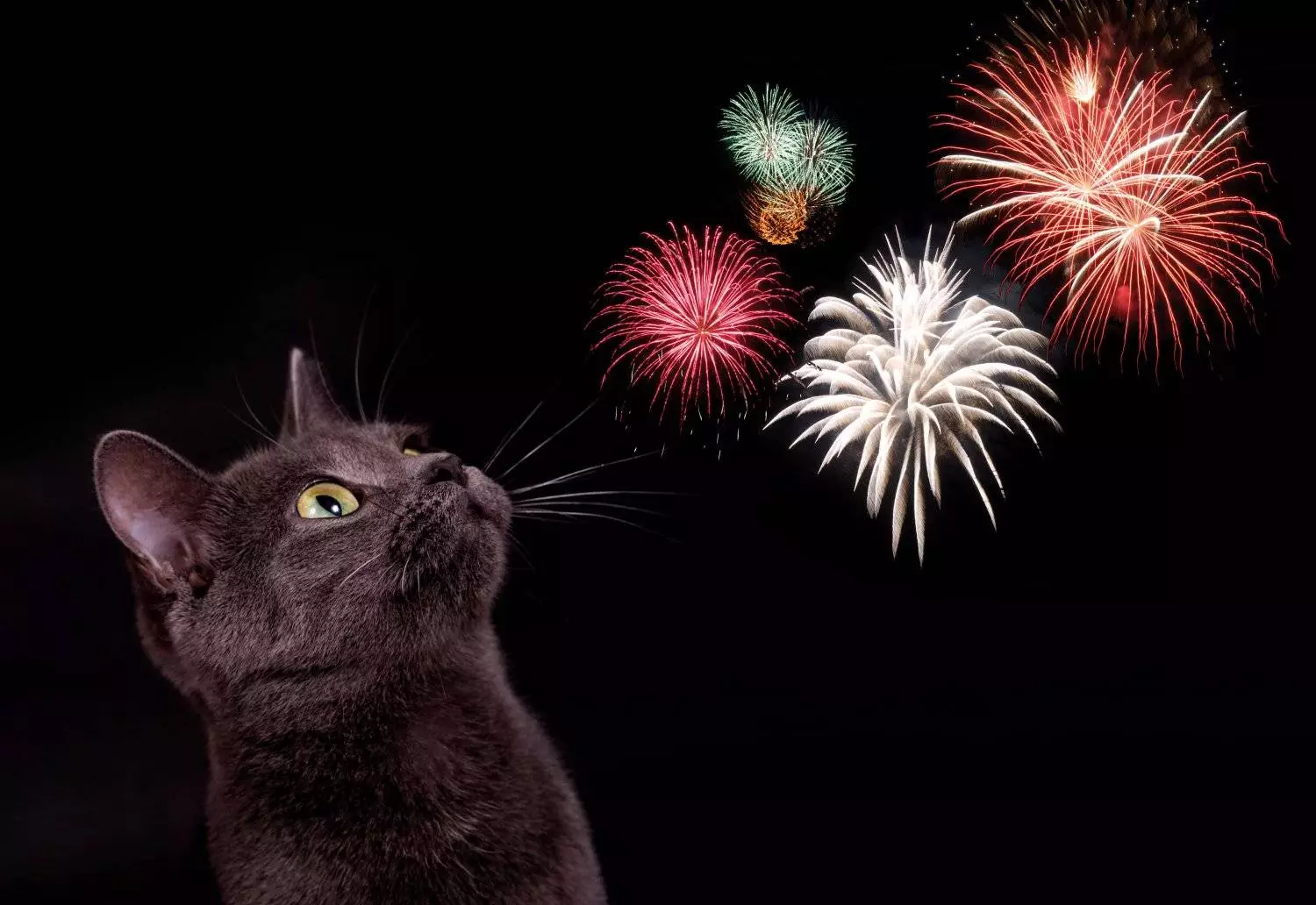For many people, fireworks symbolize celebration and joy, lighting up the sky with vibrant colors during festive occasions. However, for our beloved pets, the booming sounds and flashing lights can evoke feelings of terror and anxiety. Alarmingly, the 2022 PDSA Animal Wellbeing Report highlights that a staggering 41% of dogs and 30% of cats in the UK exhibit signs of fear during fireworks displays. This translates to approximately 4.1 million dogs and 3.3 million cats suffering through these noisy nights each year. Understanding this stark reality is crucial for any pet owner looking to ease their animal’s distress.
Understanding Your Pet’s Sensitivity
Pet owners must recognize that the auditory and visual experiences of fireworks are far more intense for animals than for humans. Dogs and cats possess heightened senses—particularly acute hearing and keen eyesight—which means they perceive these bursts of sound and light much differently. According to PDSA Vet Nurse Nina Downing, this disparity can lead to overwhelming stress for our four-legged companions. The combustive pops and whistling rockets evoke primal fears, causing pets to act unpredictably and with distress. As responsible caretakers, it’s essential that we work proactively to prepare our furry friends for these annual spectacles.
Preparation is Your Best Ally
The first step in safeguarding your pets during fireworks season is preparation. Knowing the exact dates and times of local firework displays can help you create a calm environment for your animals. Simple actions like closing curtains to block out visual stimuli and securing doors and windows can create a sense of safety. Additionally, creating a calming atmosphere that drowns out external noise—through music or the television—can significantly alleviate anxiety.
Building a safe haven, or what can be referred to as a “firework den,” is another effective strategy. This cozy retreat should be furnished with your pet’s favorite items—a few toys, comfortable bedding, and perhaps some blankets tucked around the area. Importantly, this den should not feel restrictive; pets must have the freedom to enter and exit as they please.
Utilizing Scent for Comfort
The concept of pheromones can further enhance your pet’s sense of security. Synthetic pheromone diffusers or sprays mimic the natural scents that help pets feel calm and safe. Starting these treatments a few weeks before firework season can yield the best results. Nina Downing indicates that allowing these scents to permeate the environment prior to the noise can create a reassuring backdrop for your pet.
If these initial measures are ineffective and your pet remains highly anxious, it may be time to consult a veterinarian. Professional help could include medication to help ease your pet’s distress. However, this should be approached as a short-term solution rather than a long-term fix, emphasizing the importance of finding the right care plan ahead of the firework season.
Desensitization: A Long-Term Strategy
For those willing to invest the time and effort, desensitization training can reshape how pets perceive fireworks. It’s a gradual process that builds comfort with noise exposure over time. Veterinarian guidance is recommended to tailor a plan specific to your pet’s needs, emphasizing patience and consistency throughout the training.
Begin by playing recorded firework sounds at a very low volume. Observe your pet’s reactions closely, and if you notice any signs of stress, immediately stop the session and try again the next day at an even lower volume. The key takeaway? Never rush the process. It’s about creating positive associations, and progression should be gradual. As your pet becomes accustomed to the noises, treat rewards can reinforce positive experiences related to the sounds.
Understanding Their Unique Needs
Ultimately, every pet has unique sensitivities. While some might feel more secure in a den, others could prefer to hide under furniture or choose different corners of the house. Gauge your pet’s preferences and resist the urge to intervene if they seem to find comfort in their chosen spaces. Your role is not to stress them further but rather to provide a supportive atmosphere they can retreat to when anxiety strikes.
In essence, safeguarding pets during fireworks season does not hinge solely on a few last-minute measures but rather a holistic understanding of their needs and sensitivities. By investing in the right preparations and training, we can help our pets navigate this fiery annual ordeal with a little more ease and comfort.


Leave a Reply